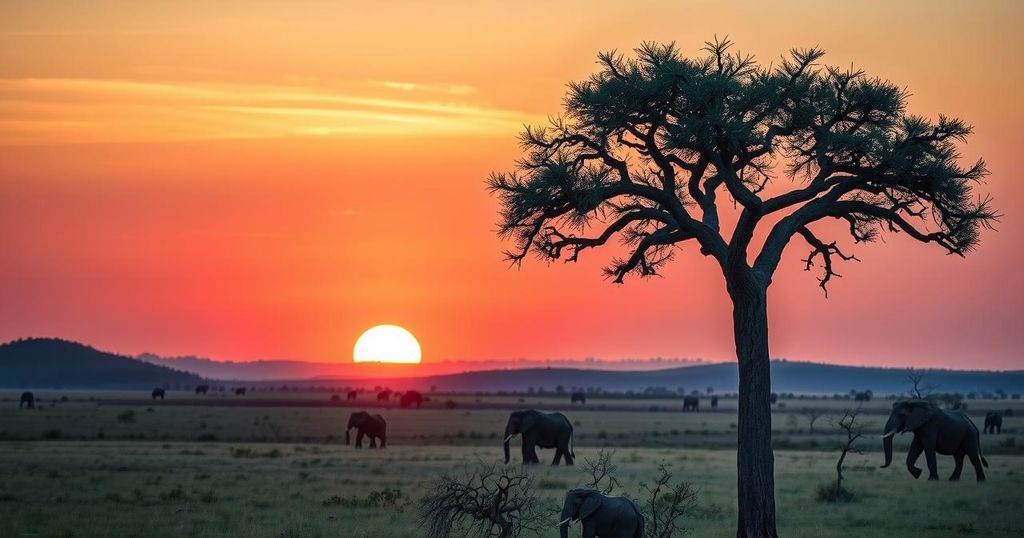The Crisis Facing Southern Africa: A Call to Address Drought and Climate Change

Southern Africa is facing a significant drought impacting over 61 million people, with serious food insecurity in Namibia prompting culling of wildlife to provide sustenance. This situation is a critical reminder of the growing dangers associated with climate change, which has led to an increase in natural disasters worldwide. Collective action against climate change is necessary to avert further environmental crises and suffering.
Currently, Southern Africa is experiencing an alarming drought, with over 61 million individuals affected and more than 20 million in critical need. This severe drought is one of the worst in over a century, leading nations like Botswana, Namibia, Lesotho, Malawi, Zambia, and Zimbabwe to declare states of emergency. Particularly in Namibia, approximately 40% of the population faces acute food insecurity, necessitating immediate government intervention.
To address the escalating hunger crisis, Namibia has initiated a controversial measure to cull around 700 wild animals, including elephants and hippos, to provide food for its population. As of early 2024, 84% of Namibia’s food reserves have been depleted. This is not a new occurrence; the country has previously declared drought-related states of emergency multiple times over the past decade.
The root cause of this devastating drought can be attributed largely to climate change, which has altered weather patterns globally. Statistics show a marked increase in natural disasters related to climate, with major floods and severe storms seeing significant rises in frequency since 1980. This alarming trend highlights the urgent need for comprehensive action against climate change to avert further environmental catastrophes.
The consequences of climate change extend far beyond regions currently affected by natural disasters. Every individual, regardless of their geographical location, is impacted in some capacity; thus, collective action is essential to mitigate this crisis. While individual efforts may seem inconsequential, if a sufficient number of people advocate for change, meaningful progress is possible. Waiting any longer will exacerbate the already critical situation globally.
It is imperative that immediate steps are taken to combat climate change, given the historical delay in addressing this issue. Action is not merely necessary; it is crucial to prevent reaching a point of no return. The ongoing crises serve as a clarion call for a unified commitment to global climate action.
The current drought in Southern Africa, particularly affecting Namibia, exemplifies the dire ramifications of climate change. With millions in a state of crisis and severe food insecurity, immediate action is necessary to alleviate suffering. Collective global efforts are integral in combatting climate change to prevent further environmental disasters. This urgent situation emphasizes the need for proactive measures to protect vulnerable populations and ecosystems from future threats.
Original Source: www.theteenmagazine.com








